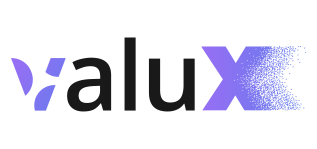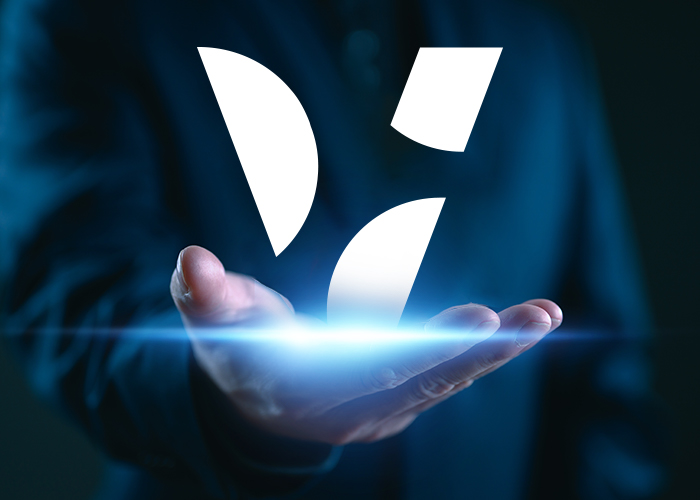Tokenization is rapidly becoming the financial industry’s next major transformation. By converting real-world assets (RWAs) such as real estate, bonds, equities, and even fine art into blockchain-based digital tokens, financial institutions can enhance liquidity, improve settlement speeds, and expand global accessibility. The institutional adoption of tokenization has surged, with industry leaders such as JPMorgan Chase, BlackRock, State Street, Deutsche Bank, and Fidelity Investments actively developing tokenization platforms.
Why Institutions Are Embracing Tokenization
According to Boston Consulting Group, the market for tokenized assets is expected to grow from $310 billion in 2023 to over $16 trillion by 2030. This explosive growth is driven by key advantages:
- Increased Liquidity: Tokenization allows fractional ownership of high-value assets, enabling broader market participation.
- Faster Settlement: Blockchain-based tokenization reduces settlement times from days to minutes.
- Cost Efficiency: Automating processes through smart contracts reduces operational and compliance costs.
- Transparency & Security: Distributed ledger technology ensures verifiable and tamper-proof transactions.
RWA Tokenization : The bridge between traditional finance & crypto
As regulatory frameworks evolve, institutional investors are increasingly seeking exposure to tokenized assets. Let’s explore how five major financial institutions are leading the charge.
BlackRock
BlackRock is among the earliest and most vocal institutional proponents of asset tokenization. Its inaugural tokenized fund, the BlackRock USD Institutional Digital Liquidity Fund (BUIDL), was launched on the Ethereum blockchain in March 2024. Designed to invest exclusively in cash, U.S. Treasury bills, and repurchase agreements, BUIDL is engineered to maintain a stable $1 per token value while paying out daily accrued dividends to qualified investors’ wallets. In less than 40 days, BUIDL emerged as the largest tokenized fund by assets under management, reaching a market cap of roughly $530 million and capturing substantial interest from leading crypto-native institutions such as Ondo Finance, which now holds over 200 million tokens in its portfolio.
As of February 2025, BlackRock preparing to launch a Bitcoin exchange-traded product (ETP) in Europe, likely domiciled in Switzerland. This move is a response to the growing demand for cryptocurrency exposure from both money managers and consumers. The firm had previously established a Zurich-based company, iShares Digital Assets AG, to focus on digital assets. BlackRock’s main Bitcoin-linked product, IBIT, had amassed $57.5 billion in net assets by that time.
Overall, BlackRock’s initiatives in tokenization and digital assets reflect its commitment to integrating traditional financial services with emerging blockchain technologies, offering innovative investment solutions to a broader range of investors.

JP Morgan Chase
JPMorgan Chase has been a trailblazer in integrating blockchain into conventional banking operations. With its Onyx division and the development of JPM Coin, the bank has long been testing blockchain’s potential to streamline transactions and enhance liquidity. Today, JPMorgan is expanding its vision by exploring the tokenization of a range of assets—from trade finance instruments to fixed-income securities. Although specific transaction volumes remain proprietary, early pilot programs indicate that its tokenization platforms have processed billions of dollars’ worth of assets, paving the way for a future where multi-trillion-dollar markets could be supported by secure, blockchain-based settlement systems
This commitment to innovation aims to reduce traditional settlement delays, cut operational costs, and unlock liquidity in asset classes that were previously considered illiquid. JPMorgan’s initiatives reflect the bank’s broader strategy to harness blockchain technology as a catalyst for financial transformation.
Fidelity Investments
Fidelity Investments, already a recognized leader in digital asset management through its Fidelity Digital Assets division, is extending its expertise to tokenization. Building on nearly a decade of blockchain research, Fidelity been experimenting with blockchain-powered money market funds and tokenized securities. For instance, Fidelity International recently turned shares in a money market fund into digital tokens, enabling fractional ownership and real-time settlement. This move not only enhances liquidity and transparency but also significantly reduces costs associated with manual reconciliation and legacy systems
Fidelity’s foray into tokenization is driven by rising institutional interest—over 80% of surveyed investors now indicate a preference for investment products that incorporate blockchain technology. With tokenized solutions, Fidelity is well positioned to offer both retail and institutional investors access to assets that combine traditional stability with the efficiency of decentralized technology.
While BlackRock, JPMorgan, and Fidelity often grab headlines, other institutional giants like State Street, Deutsche Bank, Goldman Sachs and others are quietly making strides in the tokenization space.
State Street
State Street has been actively exploring digital custody solutions and pilot projects that leverage blockchain for managing asset transfers and settlement. Early tests suggest that tokenized transactions can settle within minutes rather than days, reducing counterparty risk and boosting capital efficiency.
Goldman Sachs
The bank has been developing its own tokenization platform to streamline bond issuance and reduce operational costs. By working with blockchain vendors, Goldman Sachs is exploring ways to tokenize debt instruments—shortening settlement cycles and cutting intermediaries. This effort positions it to potentially transform parts of the fixed income market.
Deutsche Bank
Deutsche Bank has been investing in blockchain research and developing platforms aimed at the tokenization of bonds, equities, and other real-world assets. Although detailed public numbers are scarce, industry insiders estimate that Deutsche Bank’s blockchain initiatives could eventually facilitate billions in daily transactions, reinforcing the bank’s commitment to modernizing its infrastructure and offering new, digitally native products.
HSBC
HSBC has been actively testing tokenized solutions as well. Notably, it launched a tokenized gold product through its HSBC Orion platform in Hong Kong, offering retail investors digital tokens that represent ownership of physical gold. This product demonstrates HSBC’s commitment to merging traditional asset security with blockchain’s efficiency and transparency.
Citigroup
In addition to its previous blockchain experiments, Citigroup is exploring tokenization for deposits and private funds. By investigating how to digitize traditional assets, Citigroup aims to enhance efficiency and liquidity while cutting costs. Although details remain under wraps, Citi’s initiatives indicate that it is positioning itself to join the tokenization trend.
Janus Henderson
The asset manager is following in the footsteps of BlackRock and Fidelity by tokenizing fund units. For example, Janus Henderson plans to manage its $11 million Anemoy Liquid Treasury Fund by converting fund units into digital tokens on a blockchain platform. This move is intended to boost liquidity and lower administrative expenses, potentially setting a new industry standard for mutual funds.
Looking Ahead
The rapid institutional adoption of tokenization signals a transformative period in financial markets. As more banks and asset managers integrate blockchain technology into their operations, we can expect the digital representation of real-world assets to become a mainstay in global finance. With increased efficiency, lower costs, and enhanced transparency, tokenization is poised to democratize access to investment opportunities and redefine how capital flows across borders.








